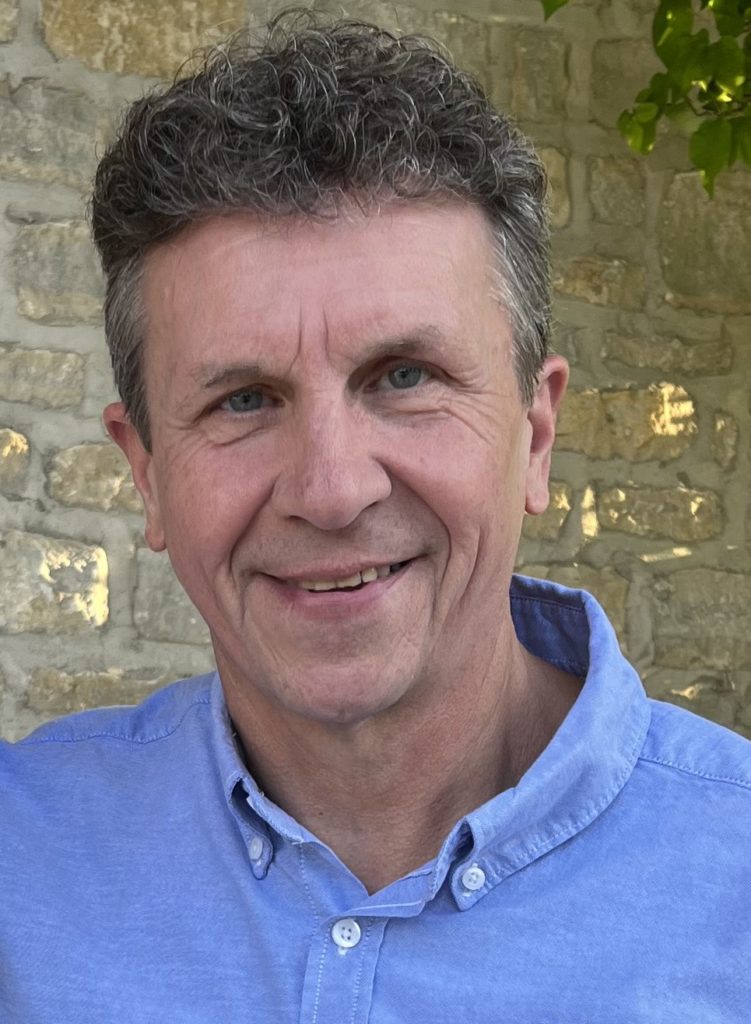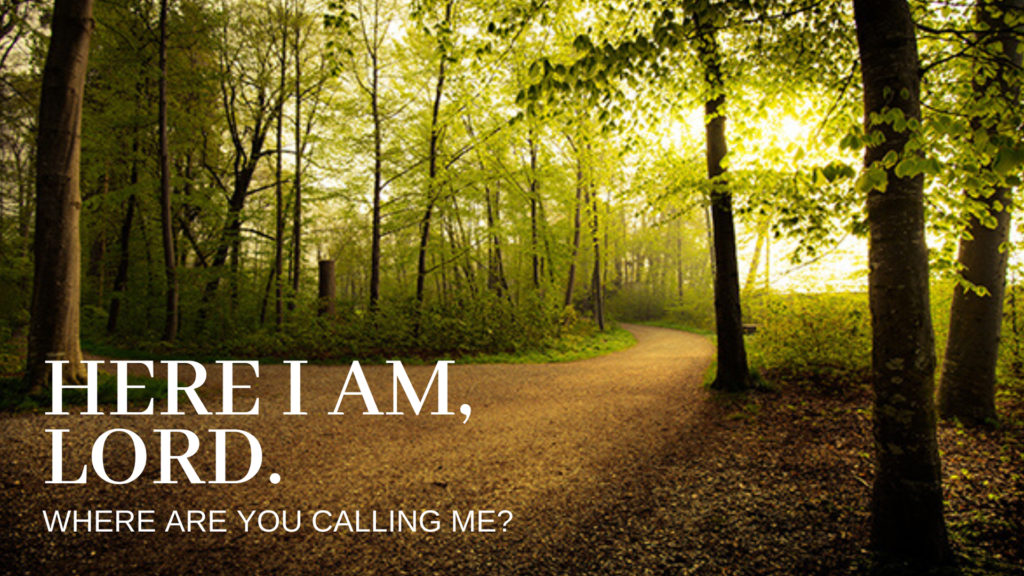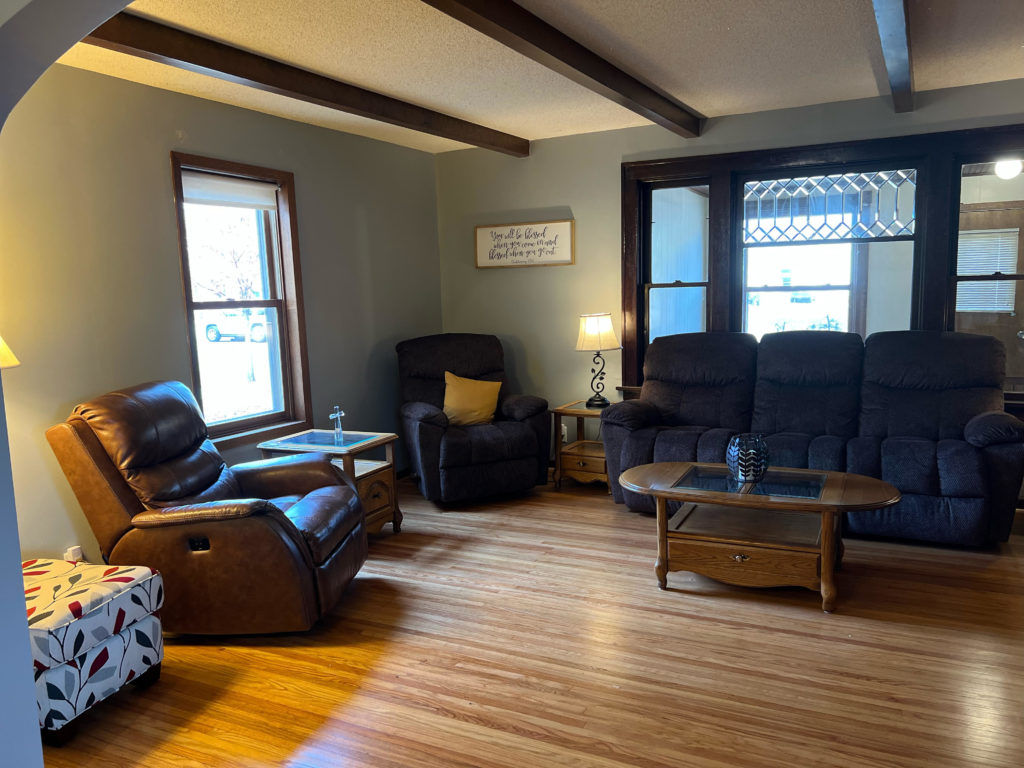Over the course of the past three decades, I have had the immense privilege of leading disaster relief efforts around the country, typically following a natural catastrophic event. Since my young family and I drove down to Homestead, Florida in 1992 to bring aid to St. Andrew’s Lutheran Church following the fierce storm, Hurricane Andrew, I have been more intentional in developing this ministry outreach, now known as Cross Country Mission. Here at River’s Edge Ministries, it has become a priority for us to avail ourselves to the needs of those who have been through the storm … be it a hurricane, tornado, flood, human-generated catastrophe, or just the difficulties of life, by offering our time, energy, and resources. No doubt, many of you have participated in such satisfying and sacred work.
You might be familiar with an old Yiddish proverb, “We plan, God laughs.” In this article, I will unpack how a most fascinating derailment of ‘well-thought-out’ plans forever changed my life and that of many others. As it turned out, God had a much better long-term plan in mind. In Part 1 of this article, I will tell how City Mission was born out of Cross Country Mission, and the supreme importance of expecting the unexpected and getting out of the way to allow God to be God … and make a way. Proverbs 3:5, 6 comes to mind: “Trust in the Lord with all your heart and lean not on your own understanding; in all your ways submit to Him and He will make your paths straight.” Or to put it into terms that Henry Blackaby might have used, remember that God is the long-term planner and He is the One on mission. Our job is to look where He’s working and join Him.
It was the spring of 2014, just weeks before I was to lead my 8th disaster relief effort through Cross Country Mission, when I received an unexpected phone call from those who would be hosting us that the necessary housing for our team could not be provided. At that late juncture we had nearly 40 adults and youth signed up, committed, and excited about making the venture to the severely damaged shores of New Jersey. Finding myself in a somewhat awkward predicament, I turned to my wife and muttered something incredibly profound like, “Now what?!” She paused, for maybe five seconds, and responded with definitive and, dare I say, Holy Spirit-inspired clarity and conviction:
“Why don’t you ‘do that thing’ you wrote about back in 2006?” Typically, she is measured and careful in weighing in on such circumstances. I listened.
What you’ll read below originally appeared in small booklet form and served as ‘a primer’ to prepare those who will be entering into any given disaster zone and participating in various stages of clean-up, re-building, and healing. (In fact, this booklet is presently being revised for a second printing available in September and has been slightly updated for this July 2022 article.)
In Part 2 of this article, I will present how City Mission developed over the years and describe the most recent event that took place in May of this year, City Mission: Baltimore and Beyond—2022. As you well know, oftentimes it takes one door to close for another to be opened. This would not be the end of Cross Country Mission, but the beginning of a new missional ministry called City Mission. When our initial plans fell through, we looked to see where God was working and the Lord birthed something brand new, much better and more complete than I could dream or imagine! Back in March of 2014, I’m extremely grateful that I cried out, “Now What?!” to my most important confidant, and that I listened to her inspired words, “Why don’t you ‘do that thing’ you wrote how about back in 2006?” So, here is ‘that thing’ that I wrote about over sixteen years ago:
Many thought-provoking questions were raised during a church leadership conference I attended in January of 2006. But there was one significant question put before the group that remained unanswered: “What will it take to get those who are embedded in the so-called Institutional Church to fully understand the urgent need to be about mission, here and now?” For me, this question triggered many more questions—“Where are the resources that can be released immediately to those who need them?” and “Where is the sense of urgency to touch the heart of the poor—those whose lives have been shattered—and to receive their touch?” and, more pressing, “What will it take to awaken the sleeping giant, known as the Church?” Though words were not spoken, my gut stirred with a response, “It will take another Hurricane Katrina.” I present this article not as an answer but as a soulful wrestling. Let me explain.
A Perfect Storm Changes Everything in its Wake
On August 29, 2005, a Category 4 hurricane named Katrina forever altered the landscape of the Gulf Coast. There had been other immensely powerful storms in the past, but Katrina was different. It radically reformed the terrain from what it had been for hundreds of years into thousands upon thousands of acres of complete and utter devastation. The destruction was apparent in ways small and large—from children’s dolls and other signs of innocent and precious life wedged high in treetops, to the giant floating casinos washed up on shore. You may have read the storylines or seen footage of the aftermath, much of which looked like a war zone, or a scene from a post-nuclear bomb drop. The climatic conditions were just right for the perfect storm, leaving in its wake a coastline that will never be the same.
It was Thanksgiving week, just three months after Katrina hit, when my wife, our three oldest kids, and I headed to Biloxi, Mississippi. Quite frankly, our decision to head south came as a visceral response to an invitation we had received just a few weeks before. Like some of you, we had seen the footage of the storm’s destruction, but nothing had prepared us for what we would experience firsthand. Hurricane Katrina approached the Gulf Coast, then stubbornly sat and churned for 18 hours, mercilessly redefining the landscape in apocalyptic ways, forever altering miles of coastline and either completely annihilating or severely impacting dozens upon dozens of communities.
We spent three days in the East Biloxi area. Our last day was Thanksgiving morning. We spent those privileged hours helping to gut the rear interior of Norman and Patricia’s home. The scarce and mold-infested remnants of their belongings were carefully piled under a large plastic tent in their backyard. Norman was obviously still reeling in the aftermath of the storm. As he eventually explained: “Because we’d been through so many storms we decided to stay; besides, we heard on the news that the center of the storm was going to hit New Orleans. You know, if you leave, they come in by the truckloads and steal everything in sight, so we stayed.”
He shared much through his storm-shocked yet resolute demeanor. He had awakened the morning after Katrina hit to a power outage … the dead calm of Katrina’s eye … and then more of the 150+mile/hour winds slammed into his home as the far side of the storm’s eyewall hit Biloxi. And then the water … his own mother floating on a sheet of plywood tied to cables for 12 hours … his wife and two children up in the attic for eight hours, the water continually rising … and then the 28-foot storm surge … 40 of his friends and neighbors killed. And so the stories went. Later in the morning, I noticed a few boxes of collector’s cards (mostly sports-related) and I asked Norman about them. He told me that card collecting had been his hobby since he was a boy and that he had had literally thousands of cards. In fact, three months after the storm, “you could still walk about anywhere along the beach or in the neighborhood and you’ll find one of my cards,” Norman said. His many cherished and scattered cards are an apt metaphor to describe the reality of so many innocent lives forever changed … blown away … torn and scattered.
A New Way of Seeing
It’s been nearly 17 years since our first visit. Our second trip came during Holy Week of 2006. Our third hurricane relief effort was tentatively set for April of 2007 with the hope of broadening the base of interest and participation. The truth is that once you’ve been down, the sights and sounds and smells and stories get in your belly. And they never leave you the same. I suppose this is called compassion. Compassion seems to be that thing which drives our mission, which allows us the privilege to participate in events much larger than ourselves and our own worlds. At a time when our own family was in the midst of major transition, the trip to Mississippi flipped our lives upside down and inside out and reprioritized our living in big ways. We have been blessed and given new perspective through these experiences. Certainly the few days we’ve spent in Mississippi have reformed our lives permanently.
But since our first visit, a question has slowly surfaced: Is it necessary to head south to do the work of the Church? Of course not, but because these experiences have given my family a different perspective—with new eyes—our answer has been Yes. But new eyes for what? Because of Katrina we see more clearly what is in our own backyard, under our own large plastic tent. We live in Mt. Airy, Maryland, just 40 minutes from Baltimore and 55 minutes from Washington, D.C. Now that we’ve “seen” the intense suffering of the residents of the Gulf Coast, we’re no longer able to so easily overlook those who recurrently struggle with the effects of poverty and crime. How can bridges be built between where I live in the artificial comfort of suburbia and the complex challenges of these cities? In the life of my family, and in many lives of faithful Christians who have attended to the needs of those struggling in Katrina’s wake, the storm has become a reformer of sorts. Unsought, unwelcomed, but a powerful force in changing our lives and what it means for us to be the Church. Katrina has become “an unwelcomed reformer.”
Luther: Another Unwelcomed Reformer
There has been another. On October 31, 1517, a different sort of storm blew through Northern Europe. On that day, Martin Luther posted his 95 Theses upon the north door of the Castle Church and forever altered the ecclesiastical, political, and spiritual landscape of the world. He has been compared to a “bull in a china shop” and even a “wild boar invading the Lord’s vineyard.” Like Katrina, he was unsought and unwelcomed. But the conditions in the Church (and the surrounding culture) were just right for his perfect storm, and the Church has never been the same. Reform truly is a messy and costly affair. Could it be that though Katrina destroyed so much in the lives of those who live in the Gulf Coast region, in her wake the Church is discovering anew how to be the Church? Katrina redefined the lives of those who live in the Gulf Coast, but has she also reformed the way Church is Christ to those in need? In short, has Katrina (like Luther before her) brought out the best of the Church?
It’s been said of Biloxi—and I imagine the whole region—that if it weren’t for the incredible and on-going work of the Church, and other volunteer organizations, the region would be entirely lost. The Church has responded and continues to respond out of its core. And through Christ, the impossible becomes possible … and new (Revelation 21:5). During any given crisis, the Church so often shines as that radiant Bride spoken of later in verse 9—I wonder why?
I believe there have been significant lessons given to us through Katrina, lessons that should be transferable to any time and place. How about the Katrinas that have blown through our own inner cities? The Katrinas that have destroyed the settled peace in our own backyards—what are we trying to protect under our plastic tents? When a Katrina hits, the playing field is leveled. All of our props, scaffolding, programs, assumptions, plans, neatly planned budgets, and designated line items are swept unto oblivion, like Norman’s baseball cards. What happens when that which was of penultimate concern is now no longer a concern because it does not exist? When all is stripped away, what does the Church look like?
Why Does it take a Storm to Awaken Us?
Unfortunately, it seems to take a Katrina to awaken the Church to be all she was meant to be. Whole cities are being lost because the Church is waiting for the next big crisis instead of looking just around the corner at the terrible daily suffering and grinding destitution in our inner cities. And the painful irony is that it seems that just up the street another church is closing its doors, sitting on a huge memorial fund but not able to move forward and be the Church! Surely Christ—and those witnesses who have gone before us—are weeping from the place of heaven as one “well-established” church sits on its untapped resources while another small but viable church the next block over is withering away because of lack of monies. Just when the world desperately needs the Church, it is asleep. Worse, sometimes it is found defiant and turning its back on the world.
Lord, move us beyond our places of comfort. Help us not to play Church but be the Church!
Lord, help us get our eyes off the Church and on to the brokenhearted and to the base of our mission … the purpose of our existence. Lord, motivate us not to attend to our programs but to Your people … let nothing keep our hearts from breaking as we peer into the eyes of the people You love, the Normans of the world who have been through the storm. Help us let Katrina reform Your Church as Luther did over 500 years ago. Help us read the theses Katrina posted for us on the shattered remains of houses in New Orleans, Biloxi, and countless other communities along the Gulf Coast. And help us read the theses posted for us on the vandalized and graffiti-covered doors of shuttered inner-city tenements and storefronts. Help those of us in suburbia who are shuttered into our desperate worlds of materialism and busyness.
During our first trip to Biloxi, we stayed at Bethel Lutheran Church, which had become a Lutheran Disaster Center overnight. As we approached the church building and grounds, it was immediately obvious that Bethel had been transformed into a M.A.S.H. unit: The front entry sidewalk became a drop-off for boxes of various supplies, the narthex became a health clinic, the pastoral offices became the “war room,” the Sunday school rooms became sleeping dorms, the sacristy became storage for canned goods, the fellowship hall became the main dining area, the kitchen was still the kitchen, the worship space became overflow for sleeping quarters and supplies, the side yard became a place for shower stalls, and the parking lot became a mini-trailer park. And with all of that it continued to do its Sunday morning “Church thing.” What an immense joy to witness the Church being the Church. And this was a small Church. BUT, this is the Church in all her glory, and it was repeated through hundreds of churches throughout the Gulf Coast.
Becoming the Body of Christ: His Hands and Feet
No doubt, through the paradoxical power of the cross, Katrina has redefined the Church in at least three arenas. These are some of the observations I was privileged to behold and hopefully learned from the Church in the Gulf Coast region:
- Petty differences don’t render the Church passive, let alone immobilized. There is now a visible and potent unity stationed throughout the area;
- Because church facilities were being utilized to their fullest potential, the Church was able to exist as a base of operation sending forth groups and, thus, continually and consistently building bridges of compassion;
- And, similarly, there was a holy and vibrant chaos—A 24/7 movement from the base to the field. It served as a center to send forth individuals through teams in the name of Christ, an army of men and women and boys and girls, offering the fullness of their giftedness on the chaordic edge of adventure and living.
What (and/or Who?) is the Katrina in our midst, even now? Again, what happens when all the props are brought down and the playing field is leveled? Isn’t it time for the Church to be transformed into one massive M.A.S.H. unit, no matter the time of day? Just imagine if every one of the 350,000+ churches scattered throughout our land became Church. It is time for the Sleeping Giant—for the Church—to rise. It is time for the Church to be the Church “while it is still day.” (John 9:4)
We brought a piece of Biloxi back home with us: A life reformed and even more sacred. I invite you to join us in this revolutionary movement … Simply being His Church for such a time as this!
So, this reflection-observation piece is what I wrote in 2006 and became the basis for launching our first City Mission during Holy Week of 2014. Again, in Part 2 of this article, I will describe in detail how City Mission has grown into a multi-generational-denominational movement and impacted many hearts and minds for the sake of the Kingdom.
(Image: NASA Goddard Space Flight Center)

































